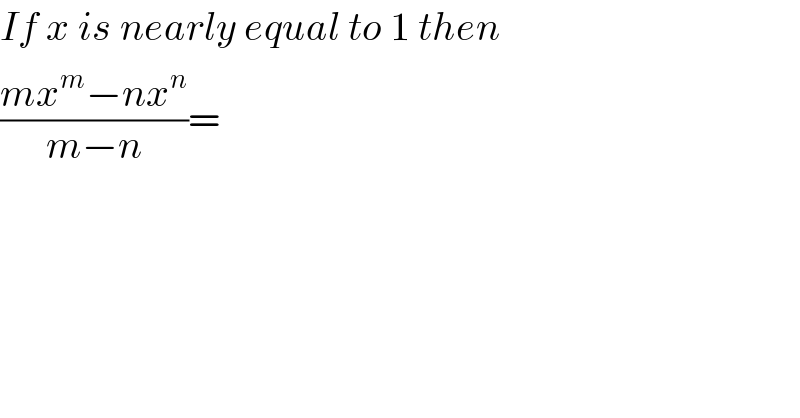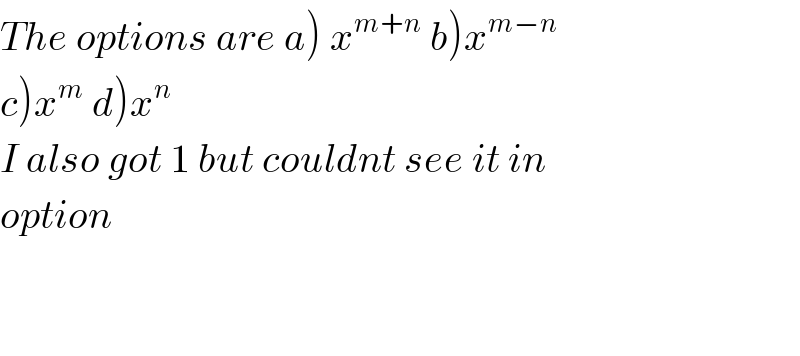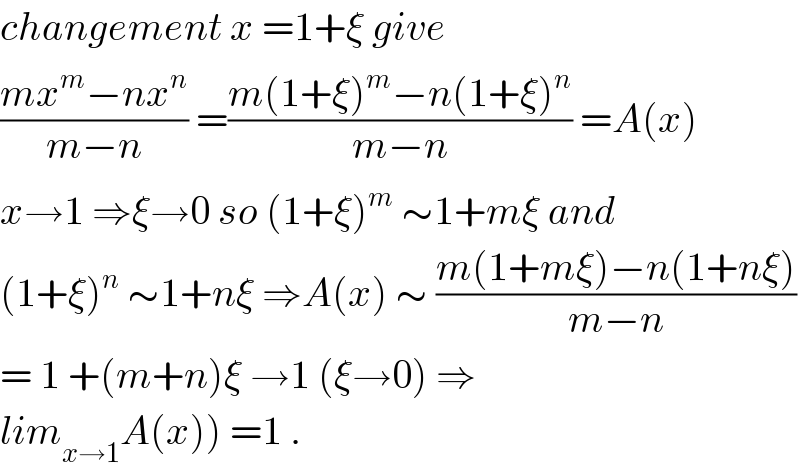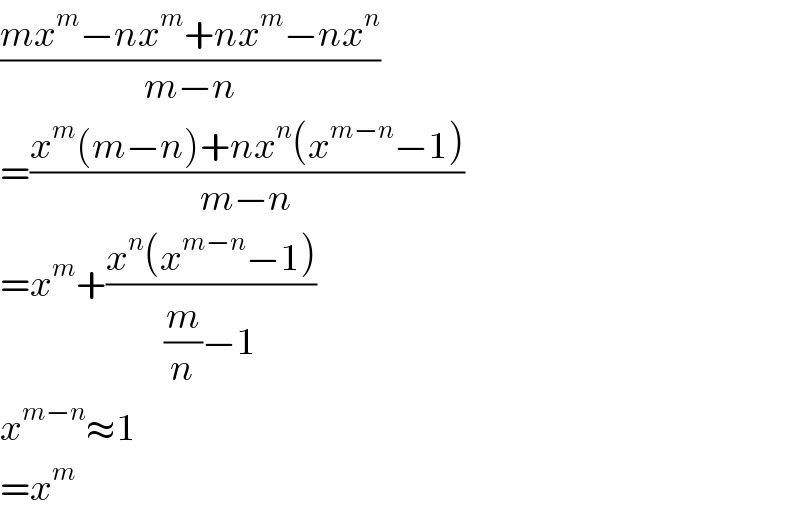
Question and Answers Forum
Question Number 44397 by Necxx last updated on 28/Sep/18

Commented by MrW3 last updated on 28/Sep/18

Commented by Necxx last updated on 28/Sep/18

Commented by MrW3 last updated on 28/Sep/18

Commented by math khazana by abdo last updated on 29/Sep/18

Answered by ajfour last updated on 28/Sep/18

Answered by tanmay.chaudhury50@gmail.com last updated on 28/Sep/18

Commented by Necxx last updated on 28/Sep/18

